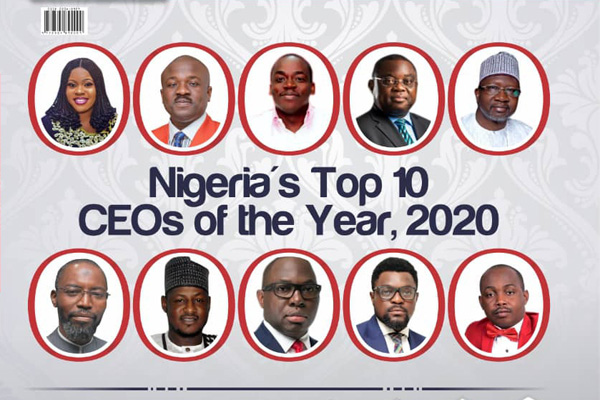The quality of organisational leadership may go unnoticed until the unexpected happens — like the pandemic-driven bad operating season of 2020. The ability of the CEO to navigate the organisation through the health and economic crisis in the year to meet the expectations of stakeholders is the litmus test of the stuff he is made of.

The Top 10 CEOs of the year, 2020 feature distinguished personalities in organisational leadership, who applied innovative approaches to enthrone the corporate purpose. They are the corporate chieftains, who charted new courses of handling complex operating challenges and moved against the sudden economic and industry downswing.

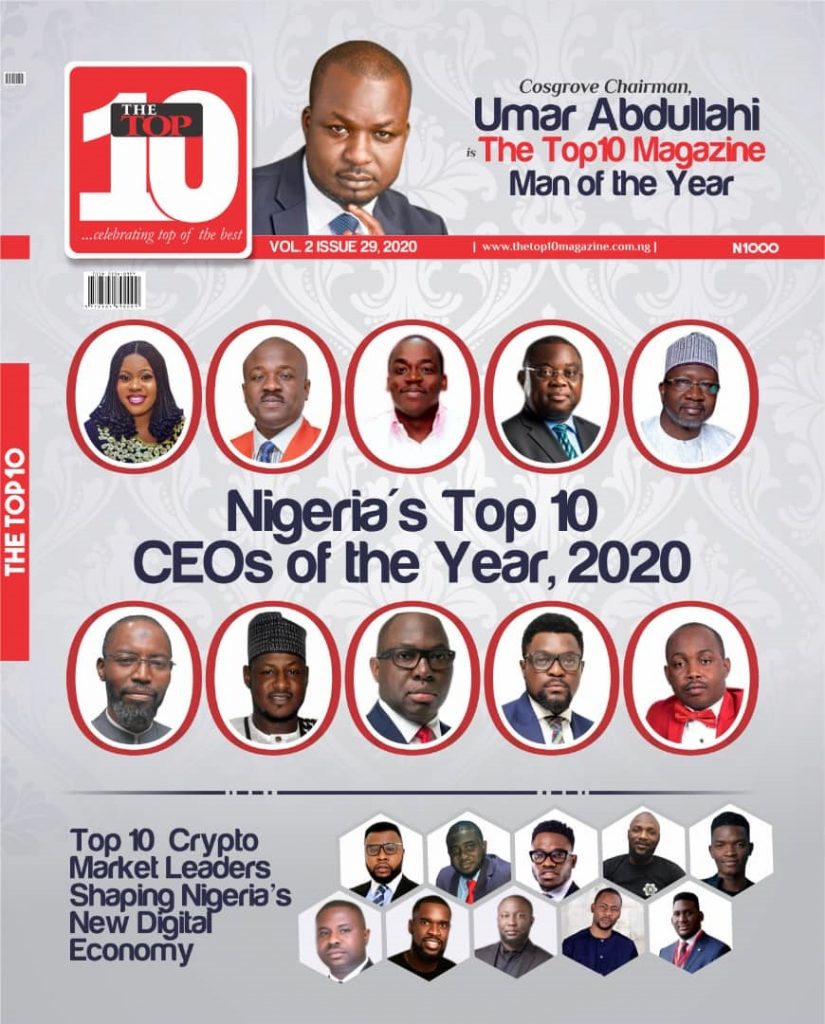
They are the CEOs that succeeded in enlarging the corporate coasts, optimising company fortunes through innovative responses that met customers at points of need. Beyond the balance sheet, they impacted greatly on the wider economy and society in a time of global turmoil and economic lockdown.
Unusual hurdles crossed
CEOs faced the challenges of how to deal with a tripod of massive economic shocks in the demand and supply functions as well as oil price shock. The ominous combination is something unprecedented, leaving virtually no room for businesses to thrive in the normal course of operations.
The path of corporate governance in 2020 was strewn with risks of heightened unemployment and poverty, insecurity, upsurge in inflation led by food prices and other basics, power shortages, lack of fiscal space – all crowned by the outbreak of coronavirus pandemic.
It was virtually impossible for companies to grow revenues in the situation and so cost cutting became the order of the day for managers in corporate and institutional corridors in 2020. More than ever before, managers played the inward looking game of business survival – slashing expenditure budgets and building up massive supplier credits.
New test for CEOs
The restrictive policies shrank the business space for everybody with multiplier effects of severe loss of jobs, consumer spending squeeze, cash flow constraints and business closures. The resulting disruption in the production-consumption chain erased opportunities and hiked risks across sectors and industries.
A new level of risks and new dimensions of operating difficulties were unveiled for companies and their CEOs in 2020. The outcome is an equally heightened demand for strategy and innovation from CEOs to deliver corporate goals anyhow. It was a year that demanded for solutions that no CEO had known ahead of time.

It was an unusual year that put CEOs to test in terms of capability for outside the box responses. It was a year that tested the ability of corporate managements to devise pragmatic approaches to stay the enterprise in the face of the failure of the normal course.
Who made the list?
The unusual challenges of 2020 however produced unusual successes in terms of how CEOs reengineered operations to get their companies ahead. Such are the candidates that the Top 10 Magazine scouted for in constituting the final list of the top 10 CEOs for the year.
The search focused on identifying the CEOs who achieved their best value-creating and innovative year in 2020. The mission was to fish out people who, through innovative thinking and action, led in discovery of alternative routes in production and service delivery functions through the economic lockdown. It is an assembly of people who accomplished great missions in reinventing themselves and the organisation during the year.
The group includes CEOs, who applied deep insights and top notch strategies to lift their enterprises in a period of general casting down. Among them are CEOs who spread the corporate nets wide in diversification and raked in the rewards of plowing the virgin lands.
In the group are CEOs who responded with speed to the needs of a suddenly changed market, thereby shinning the light of continuity and survival in a period of uncertainty. From the group came new products offerings prompted by self-reliance and built by looking inwards.
One key feature the top 10 CEOs of the year, 2020 have in common is the advancement of knowledge-based economy, creating new opportunities for people to unleash their full potentials in a borderless, digital world.
Precious Ogun Michael – Group chief executive officer, Oxford International Group

Barrister (Mrs.) Precious Ogun Michael, group chief executive officer, Oxford International Group is on the driving seat of a Lagos-based top real estate conglomerate with a network of about 200 operational businesses in Nigeria. The legal practitioner per excellence and an astute real estate consultant took over the headship of the conglomerate this year and excelled in defiance of the many troubles that corporate chieftains faced in 2020.
She grew Oxford International Group from a N1 billion business venture to N8 billion within the first six months as CEO. She enlarged the coast of the group through business expansions not just in the real estate industry but also across other operating fields.
As part of her diversification strategy, Oxford Green Farms Limited came onboard to extend the group’s operations into the agricultural sector. Safeguard Microfinance Bank Limited also came on stream as the group’s arm in the financial services industry. There were also cross-border expansions of the business to neighbouring Benin Republic as well as Rwanda.
The ability to accomplish the great feats despite the coronavirus-induced health and economic crises speaks loudly of Michael’s outstanding qualities as a result oriented, excellent executor, goal getter, self-motivated and hardworking leader.
She holds an LLB in Law from Adekunle Ajasin University Akoko, Ondo State before proceeding to the Nigeria Law School, Bwari Abuja where she earned her BL. Her leadership qualities began to show quite early in life as chapel prefect in primary school and school assembly prefect in college. She finished secondary school education with the best WAEC result in her set.
Her distinguished performance earned her the opportunity of going through the university education on the scholarship of the Ondo State Scholarship Board and the ODUA Scholarship Board. She justified the honour by emerging the best student in her faculty all thorough the 200 level to 400 level. She graduated with a CGPA 4.36 and won the Dean Faculty of Law’s Best Student’s prize.
While in school, she worked in a law chamber – Legal Temple between 2011 and 2015. There she held positions as assistant general secretary, the Lord Advocate and Deputy Presiding Don. On graduation from the law school, she practiced law briefly at the A.O Williams Law Firm and Adekunle Ojo Law Firm where she worked as junior counsel in the legal department of both law firms. She joined Oxford International Group in 2018 as head of human resources from which she grew to become CEO in 2020.
Oxford International Group is a privately owned and internationally recognized business empire with a diversified operation in real estate, construction, property management, law, technology, finance, asset management, banking, fashion, oil and gas, energy, agriculture and more. Michael is driving the business with commitment to the pursuit of service excellence, offering top notch business relationships to a host of partners across all the operational business ventures.
The company started operations as Oxford Commercial Services in 2016 with the focus on reducing housing deficit in Nigeria. A combination of able leadership and a dedicated team has powered a tremendous growth in revenue, the size of the balance sheet and the capacity to maximize the business potentials of a robust client base both locally and internationally.
The group is presently acclaimed to be Nigeria’s No.1 most diversified commercial business empire. In four years, it has built 22 member companies, 28 estate locations and still counting and about 200 credible operational businesses providing valued products and services across key sectors and industries.
It boasts over 1000 highly skilled professionals at its command that drive excellent competencies across its markets. They are on a mission daily to keep the company’s promise of affordable products and services that exceed expectations.
Some of the key members of the group include Oxford Froxxir Homes & Properties Limited – the real estate arm of the group. Oxford Gold Integrated is the group’s strategic centre for positive change and innovative ideas that redefine the quality and consistency of products and services. Oxford Cal Limited is a calculations and computation outfit that provides top-notch financial services to individuals of the organization.
The group’s products include property sales, asset management, real estate investment, infrastructure and general construction and property valuation.
Over the past years, Oxford International Group has been consistent in its objective of contributing its quota to the growth and development of Nigeria’s economy. Michael is poised to do even more. She is passionate about helping people unleash and maximize their full potentials.
She has mentored over 500 youth in various areas of life including career, personal growth, relationships and faith. She is a devoted Christian and has served in a number of leadership positions in the church. Her goal is to leave everyone who comes her way with a positive touch.
Marksman Chinedu Ijiomah – Chairman/President, Chinmark Group
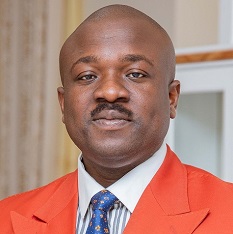
Amb. Marksman Chinedu Ijiomah is Chairman/President, Chinmark Group, a conglomerate that operates a portfolio of companies across the key sectors of the economy in more than 12 countries in six continents around the world. The group operates through subsidiaries in lending, investing, healthcare and construction. It also undertakes transportation, real estate and agriculture.
At Chinmark Group, Ijiomah has demonstrated an amazing track record of touching lives via a value chain that serves a global customer base of 100 million and counting. The visionary governs his business empire to deliver high quality services to customers but also lends a hand of help continually to the down trodden to empower them towards a decent living.
Moving against the economic lockdown, he expanded business offices aggressively as well as client base locally and internationally. From the company’s headquarters in Enugu the group has spread out across Nigeria with branch offices at Lagos, Port Harcourt, Abuja, Onitsha, Uyo, Owerri and Kaduna.
His group has visible presence in Nigeria, Dubai, United Arab Emirates, Kuwait and Japan. He also operates in China, Ghana, Gambia, United Kingdom, Ukraine, Canada, Germany, amongst others. In the counter cyclical move, he lightened up the burden of living for innumerable number of people around the world.
Ijiomah has shaped his conglomerate to run on high quality service, speedy service delivery and transparency. He has ensured the company maintains a track record of sustainability, customer satisfaction and profitability in every market it operates.
The group’s investment arm – Fin Africa empowers people through high return investment options for individuals that promise a 2 percent flat rate return on investment monthly. Another subsidiary – Chinmark Loans provides financing opportunities and funding for business owners.
It is positioned as a dependable source of quick business loans for individual and commercial funding for small scale and large, existing businesses. This is an effort by Ijiomah to encourage the hard working youth in Nigeria.
The credit delivery service comes handy as a bridge for reviving troubled businesses as well as tiding over critical business challenges in the storm created by the coronavirus pandemic. The Chinmark Group’s boss gives his word in terms of readiness to deliver financial solutions with top notch speed to whatever personal financial needs that people face. These include wedding, business, vacation/travel, housing renovation, medical expenses and payment of school fees.
The group also operates a real estate and civil engineering arm – Chinmark Homes and Shelters, which is reputed as a leading construction brand in Nigeria and the fastest growing construction company in Africa. The company creates a lot of direct and indirect jobs through its operations that cover building construction and design, interior designs, property management, land sales and purchase, estate development and consultancy.
Ijeomah also has a subsidiary company in agriculture – Chinmark Farm and Dairies, which produces healthy food products at an affordable cost. This is line with his commitment to meet the food supply needs of Nigeria’s teeming populace. The products range from grains, tubers, mutton, beef and other edible condiments.
Chinmark Farms also supplies high quality fertilizers and pesticides and hires out modern farm implements to farmers across the country. By channeling investors’ funds into diversified operations in agriculture for high returns, Ijeomah has devised an innovative way of attracting huge investments into the sector.
Other arms of his business empire include Chinmark Rides, which provides transportation services, Chinmark Medicals and Health – a subsidiary company in the healthcare sector and other businesses in consultancy and haulage. The group is on a rampaging growth to capture every segment of business enterprise in defiance of the Covid-19-induced economic downturn.
He opened a Lagos office in the midst of the pandemic, which he said is a mission to create easy access to loan facilities otherwise unavailable to micro, small and medium enterprises [MSMEs] from financial institutions as well as a good platform for people to investment for good returns.
With the opening of a Lagos office, Ijiomah said his company is set to breathe a new life in the economy of the south west region through empowering MSMEs. “We are set to collaborate with MSMEs in the region to offer loans at a very low interest rate and other management consulting services to dwindling businesses.
“We are open to partner with farmers in the whole chain of their businesses as well as budding entrepreneurs to make them stand out despite the economic challenges in the world. “Chinmark is out to touch lives across sectors with its cutting-edge technology and human resources”, he said.
Chinmark Group recently dived into hospitality with a Dubai multi billion Naira international restaurant that caters for Italian, Arabian, Indian seafood and African dishes located at Marina bay.
Kola Adewale – Founder and CEO, The Smackers Limited
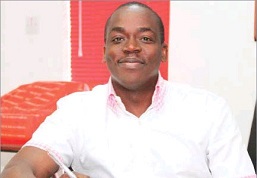
Mr. Kola Adewale is founder and CEO, The Smackers Limited with the flagship trademark The Place Restaurant. The business is a string of hospitality and entertainment outlets he started out 14 years ago in Ikeja, Lagos.
Since the inception of the first outlet in 2006, the brand has continued to soar, even defying the downswing in the economy in 2020. The ability to keep expanding his service network in 2020 despite economic lockdown and general slowdown in business momentum is the distinguishing mark of The CEO of The Place in the year.
The Place Restaurant-bar-nightclub-hotel continues to experience rapid growth all over Lagos State with locations in Lekki, Victoria Island, GRA Ikeja, Surulere, Alausa and Akowonjo. Other locations are at Ogba, Festac, Maryland, Circle Mall, Ikoyi, Satellite and Oniru, Ikotun, all in Lagos.
Moving continually against the business and economic headwinds, Adewale has built a business that is stable amidst volatility and isn’t going anywhere but up in satisfying the food and pleasure needs of customers.
The Place caters for guests who have a craving for restaurant/bar services and night life. Adewale is out to create a better everyday life for customers by satisfying their changing taste and expectations. The Place is popularly known for its array of dishes, including asun, grilled chicken, rice and yam dishes.
The bar/lounge transforms to a major night club on Wednesdays, Thursdays, Fridays, Saturdays and Sundays with great music from top-rated DJs and live performances by “A” list artistes/musicians. It also offers an irresistible package for private party hosts and event planners.
Adewale studied agricultural engineering at Obafemi Awolowo University, where he graduated in first class in agricultural engineering – the best graduating student in the year. He started his professional career at Arthur Andersen as an audit and accounting staff for six years before moving into business/management consulting and accounting for his next ten years at Arthur Andersen (now KPMG).
Hassan Usman – Managing director/CEO, Jaiz Bank Plc
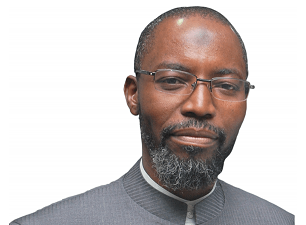
Hassan Usman, Managing director/CEO, Jaiz Bank Plc, is in charge of the premier non-interest bank in Nigeria established in 2011. The bank took off with a regional licence of the Central Bank of Nigeria to operate in the northern part of the country and transformed to a national bank in 2016 with key presence in all the geopolitical zones of Nigeria.
Usman is driving the institution on the path of its foundational principles of trust, professionalism and excellence to deliver innovative financial solutions and exceptional customer experience. His mission is to deliver the core values propelling the bank towards its purpose of leading ethical banking in sub-Saharan Africa.
Defying the economic lockdown and the operating difficulties in 2020, Usman took the bank to higher heights on both earnings and the size of the balance sheet. At the end of half year operations, he achieved a 44 percent advance in after tax profit year-on-year to N1.1 billion. Profit grew ahead of a 39 percent rise in gross earnings to over N8 billion at half year.
He expanded the bank’s operating capacity with stable growth in key assets leading to an increase of 11.5 percent in the size of the balance sheet to over N186 billion in the first six months of the year. The assets are built on liabilities of over N100 billion, investment account equity holders of N70 billion and owners’ equity in excess of N15 billion at half year, 2020. The bank is owned by over 26,000 shareholders spread over Nigeria’s six geo-political zones.
Usman graduated with a first class degree in accountancy in 1985 from Ahmadu Bello University, Zaria and became an Associate Member of Institute of Chartered Accountants of Nigeria in 1989. He obtained a post graduate diploma in management in 1995 from Maastricht School of Management. He also attended the Oxford University Advanced Management Programme in 2002.
He worked as financial controller of Nigerian Development Company Limited, Kaduna and later joined NAL Merchant Bank Plc now part of the amalgamated Sterling Bank. At NAL Merchant Bank, he held the posts of financial controller and treasurer between 1996 and 2001. Usman also had a brief stint with Inland Bank where he served as general manager, banking services before returning to NAL as deputy general manager and head, business and financial advisory group.
He joined Jaiz Bank in 2005 as a pioneer staff and was a key member of the team that led the process leading to the licensing of the bank in 2011. He served as general manager- business development from January 2012 till April 2013 and was executive director in charge of operations and information technology prior to his appointment as managing director/CEO in June 2016.
He has been instrumental from the beginning to the positioning of non-interest banking as an alternative financial service offering in Nigeria, which is open to all irrespective of race or religion. He was part of the development of the bank’s strategic business focus, which is mainly retail banking alongside some corporate and commercial banking services. The retail focus is designed to capture an estimated 50 percent of Nigeria’s population found to be desirous of ethical banking services.
Usman is on the saddle to provide for socially responsible investment outlets to meet the yearnings of the large captive market. Jaiz Bank presently has a number of such investment channels on offer. These include Jaiz Wakala Investment, a product tailored to corporate and high-net-worth individuals that need high returns with commensurate risk on their investments.
Others include working capital financing (Murabaha), designed as a convenient way of financing the working capital requirement of businesses. The product is ideal for financing the purchase of inventory and other processing materials for production.
There is also project financing/construction (Istisna’) under which the bank will construct and sell the project on completion as per agreement with customer. Another product is lease to own finance (Ijara wa Iqtina), which is a banking facility that allows customers to hire and subsequently purchase assets from the bank.
Usman hasn’t lost sight of digital banking services in his bank’s product offerings. The bank avails customers of online banking services for opening various accounts such as savings, current, kids’ savings, domiciliary and investment accounts.
He is set on a clear goal of delivering on mandate for the bank, which is to keep operations 100 percent Shari’ah compliant – that is not to sacrifice Shari’ah principles for profit. He has maintained high growth in profit while at the same time sustaining it on the path of high ethics with best practice corporate governance and sound risk management framework.
This is a clear demonstration that it is possible for businesses to make profit without sacrificing ethical values. Usman has also ensured innovative responses to customer needs, best-practice operations and functional framework and meeting the interests of equity holders all within the confines of ethical principles of fairness, transparency and objectivity.
Dikko Umaru Radda – DG/CEO, SMEDAN
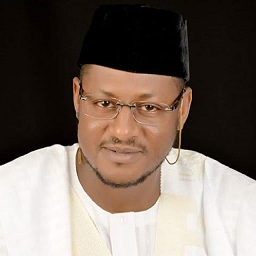
Dr. Dikko Umaru Radda, director general/chief executive officer, Small and Medium Enterprises Development Agency of Nigeria SMEDAN, is an astute politician, entrepreneur, teacher and banker with a wide administrative experience. He has brought his deep cross sector knowledge and experience into play in the development function of Micro, Small and Medium Enterprises [MSMEs].
He has demonstrated a great sense of responsibility in delivering on his mandate – which is to provide basic entrepreneurship development training, business development support in terms of counseling, monitoring the activities of MSMEs and evaluating their businesses. It includes the development of policy framework for the smooth operations of these enterprises, including intervening between them and agencies and institutions that deal with them.
Radda therefore occupies a strategic office in the development processes of the Nigerian economy where, like in all economies, MSMEs constitute the bedrock of sustainable economic growth and development. His intervening work is critically needed to ensure that having trained MSMEs’ operators; they get access to finance from development banks as well as commercial and microfinance banks.
His office also facilitates access to raw materials by providing the links to sources of raw materials. Training the operators in his domain and getting them to secure start-up capital from other agencies outside his control is quite a big challenge. He assures however that he is equal to the task, having built a lot of synergy and collaborative works with sister agencies.
Radda, who hails from Katsina State north-west Nigeria, obtained the National Certificate of Education (NCE) in 1989 from the College of Education, Kafanchan. He attended the Abubakar Tafawa Balewa University, Bauchi and graduated with a B-Tech.Agric economic and extension (Hons) in 1996.
He proceeded to Ahmadu Bello University, Zaria In 1998 and obtained M.Sc. agric extension and rural sociology in 2004. He returned to ABU, Zaria in 2005 for a Masters in international affairs and diplomacy and later capped it with a Ph.D. in agricultural extension and rural sociology from the same University in 2015.
The SMEDAN’s DG boasts extensive working experience from a class room teacher to a banker and from banking to local government chairman all between 1989 and 2007.
He has also served as senior legislative aide, NASS, Abuja between 2012 and 2014 and national welfare secretary (APC) from June 2014 to July 2015. He held the post of chief of staff to the Katsina State governor until his present appointment. He has presented several academic papers in both local and international conferences and workshops.
He is striving to achieve the best possible in MSMEs’ development though the enablers are not in place. From studies he has undertaken, Radda found that the major factor hindering development agencies like his in Nigeria is much funding challenges due to sole dependence on the national budget to execute programmes. Budgetary allocations are nowhere close to the plethora of activities and requests he gets.
He spearheaded the amendment of the Act that established SMEDAN to enable the agency generate funds from outside of the budgetary allocation. With improved funding sources, the next step is to establish the National Enterprise Development Fund, which will serve as a window for business development and capacity building activities, including provision of loans and grants. The plan is that the fund can be placed with banks to serve as a guarantee to MSMEs’ operators for increased access to funding.
Radda is quite confident of the plan. “If we can solve that problem we would have solved all the major hindrances militating against this agency. When we get it right we will not have this issue of poverty, we can create jobs everywhere”, he said.
He is quite optimistic about the critical mass of 41 million MSMEs in the country as revealed by a joint survey with National Bureau of Statistics in 2017. He is working to assist them to grow, considering the job creation potential of each of them employing just one more person. In view of the quantum leap in employment this would involve, Radda is pressing forward for government to put more effort in this direction.
He has also taken bold steps to position MSMEs in a way that they can attract official support and assistance. These include mass registration organised to enable the agency to identify all the MSMEs in the country. The purpose is to build a database of their location, products, raw materials they use and skills and trainings they have.
According to Radda, the agency needs accurate data to enable it formulate policies for MSMEs. SMEDEN can easily channel any intervention coming from government to them, he said. “Again, it will help us when investors come to the country. If they are looking for a particular product, we know those who are producing them and their location.
“Investors can use that source to get raw materials, and if it is skills they need, they can know the location of the person. No country can do adequate planning without an authentic database that can be used for the generality of the people and the benefit of the MSMEs in the country” Radda stated.
He has also taken steps to formalise micro businesses by introducing a conditional grant scheme for the operators. The grant was set as a motivation for them to key into the programme and formalise their businesses. This is a major step forward in leading these small operators to operating standards where they can be assisted to become the drivers of economic growth and development.
Lamu Audu – Managing director/CEO, Mainstream Energy Solution Ltd (MESL)
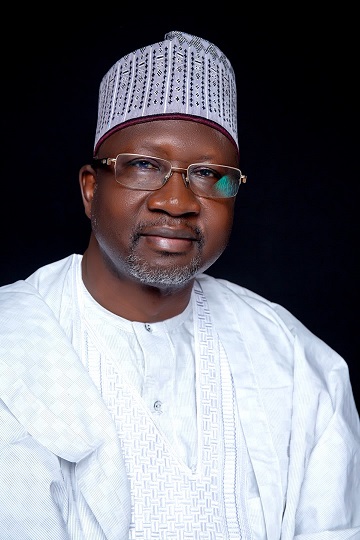
Engr. Lamu Audu is Managing director/CEO, Mainstream Energy Solution Ltd (MESL), the largest hydropower generation company in Nigeria that generates an average of 25 percent of the country’s electric power. It is the successor company that acquired the assets of Kainji and Jebba Hydro Electric PLC and Audu has been in charge of the company’s affairs since October 2013.
MESL was incorporated and licensed as a power generating company in 2011. It acquired the two hydro power plants that have a combined installed capacity of 1338.4 MW through a concession agreement with the federal government of Nigeria in November 2013.
Audu has engineered a transformation of the power generating plants from operating capacity of 482 MW for Jebba and zero generation of Kainji at the point of takeover in November 2013 to a combined power generation of 922 MW.
It has, no doubt, been quite a challenging task for the MESL’s boss, particularly having to jerk up power generation at Kainji from zero. He recalls that none of the plant’s eight generating units with a total installed capacity of 760 MW was operational in November 2013. At Jebba plant, which has total installed capacity of 578.4 MW, five of the six generating units were in operation.
Audu has worked tenaciously to change the story of these plants, lifting their total available capacity to 922 MW supplied to the national grid. Kainji is his major success story – where he has got four units operating at an available capacity of 440 MW, up on Jebba’s 482 MW.
The upgrade represents a remarkable improvement in MESL’s power generation from 2,715 gigawatt hours (GWh) in 2013 to 5,277 GWh in 2018, accounting for an average of 25 percent of Nigeria’s power generation. He sees his company’s effort optimising power generation in Nigeria as a milestone attained in delivering on the mandate of the federal government with privatization of the Nigerian electricity supply industry. “What we have achieved so far is vivid proof that privatisation works as it has created an avenue for private sector investments into the industry for the benefit of the economy”, he said.
Audu attended Ramat College of Technology Maiduguri and Kaduna Polytechnic where he obtained an OND and HND in mechanical engineering respectively. He proceeded to the University of Maiduguri where he obtained his B.ENG mechanical engineering. He attended many professional courses and trainings as well as management development programmes in Nigeria and overseas and holds a number of professional qualifications.
He started his career with Borno State Ministry of Works and Housing in 1986 where he worked for about 10 years as principal mechanical engineer. He moved to National Electric Power Authority (NEPA) as manager (mechanical) in 1996.
He was promoted to senior manager (mechanical) at Kainji Hydro Power Station in 2002. He assumed the position of principal manager (Turbine) in 2008 and was transferred to Jebba Hydro Electric Plc as assistant general manager (maintenance) in 2009. He was appointed MD/CEO of Jebba Hydro Electric Plc in 2011, a position he held until the completion of the privatization exercise.
Audu has executed several programmes focused on technical and human resource capacity development to galvanise the operation and management of the power plants. His technical capacity building initiative has pursued a robust capacity recovery and expansion programme focused on restoring the capacity at Kainji to guarantee year-round power generation of an average of 750 MW.
The company has invested heavily in technology and state-of-the-art equipment to optimise operation and maintenance at both plants. These include its inflow forecasting system and operational tool software (IFS/OPT), a satellite-based technology that aids flood management and projections of water flow into the Kainji reservoir. The technology guides the company’s operations to maximise power generation at the plants.
One of the major hurdles that Audu has crossed is a change of workers’ orientation from seeing power generation as a government-funded social service to a profit-driven private enterprise. “I must confess that this took some time, but we are proud of our achievements thus far in turning the plants around significantly and positioning for greater successes in the future”, he said.
Despite challenges and some key issues across the industry’s value chain involving huge revenue losses and huge receivables, MESL’s CEO has been able to position the company as a performance leader within the industry by proffering innovative and practical solutions to boost its power generation capacity for the benefit of the country.
He is committed to achieving stability in electricity supply to the national grid by generating power in a safe and reliable manner in contribution to national development. To this end, he is pursuing vigorously the recovery and expansion of capacity at both Kainji and Jebba plants.
MESL has commenced the rehabilitation of Unit 1G7 at Kainji targeted to add 80 MW to the national grid in 2020. Plans are also on top gear for the rehabilitation of Unit 2G6 at Jebba, which is expected to add 96.4 MW to the power grid. New generating units are also in process to bring onboard a combined 200 MW at Kainji, expanding the installed capacity to 960 MW.
MESL has also embarked upon the establishment of Amfani Industrial Park and Free Trade Zone in partnership with Niger State government. Located east of the Kainji Lake and adjacent to Kainji power plant, the development is designed as an avenue for local and international companies to set up and therefore draw huge investments into the country.
Chuks Onyebuchi – Chief Executive Officer, Union Systems, Limited (USL)
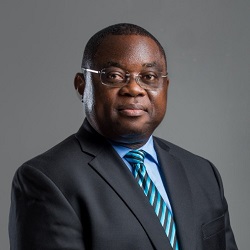
Chuks Onyebuchi is chief executive officer, Union Systems, Limited (USL), an information technology company that provides software solutions and professional services in the financial services sector. His focus is delivering software to banks for trade finance operation, treasury and other services.
His company is filling a gap in financial software in Nigeria where companies spend a fortune in acquiring foreign software products and license renewals annually. Onyebuchi offers an alternative, a home-grown, international trade finance software application – Trade-X.
Foreign software have their lapses in that the solutions do not incorporate distinct features of specific markets. This is the gap that Onyebuchi has come to fill. “Nigerian banks have a peculiar way of doing their things largely led by CBN regulations. So, if you implement foreign software out of the box in Nigeria, you won’t solve the Nigerian problem”, he explained.
His Trade-X solves all the peculiar problems faced in the Nigerian trade finance operations. His is reckoned to be the first trade application that covers the Nigerian trade operation.
The USL’s boss has over 25 years’ experience in the information technology industry. He has carved out for himself an accomplished career in developing and delivering software solutions to major banks in Africa.
His company has also launched Optimus, the first multi-bank trade finance corporate portal this part of the globe that empowers corporates to initiate and manage their trade transactions from anywhere in the world. These products are currently running in several banks in Nigeria.
In his track record of implementing foreign trade finance software application for banks in Nigeria, he found that even after go-live in each of the implementations, there were still gaps in each bank’s requirements. Banks had to resort to manual processes to close these gaps.
Trade-X is USL’s response to close the gaps created by these local peculiar requirements. The software can be plugged to any international trade application or the trade module of a bank’s core banking application to meet the bank’s full requirements. A bank can then run its operation front to back.
Onyebuchi attended University of Nigeria, Nsukka and obtained B Sc. computer science in 1986. He later proceeded to Enugu State University of Science and Technology where he obtained an MBA in marketing in 1997.
He served as vice president, Africa operation at CardBASE Technology, Dublin, Ireland between 2000 and 2004 where he was responsible for the sale, implementation and support of the CardBASE payment system in the region. The CardBASE system was the first payment systems in Nigeria branded as ValuCard and ESCA. He joined USL in 2004 as its CEO.
Some of the outstanding features of Trade-X include its adaptability to the CBN’s newly introduced automated export process via the trade monitoring system. USL had built the product in anticipation that the bank will in time automate all the forms for downloading from its single window for processing.
Onyebuchi said Trade-X was built in a way that every CBN’s form can easily be automated whenever a policy is implemented. “When the automation of TRMS was announced, Trade-X was ready to plug into TRMS immediately”, he said.
The big challenge he has overcome in the business is dealing with reservations from most banks about indigenous software. Under rating of Nigeria software by banks had made it difficult for the development of software solutions for the banking industry, according to Onyebuchi.
He is presently seeing a change of attitude with more banks starting to adopt indigenous software to solve their peculiar problems. He has learnt never to call his software local but, indigenous instead, as local in Nigeria means inferior or the opposite of the original.
He is however still dealing with the issue of premium pricing. “Most banks don’t believe indigenous software should attract good fees. They believe it is inferior and as a result, should be cheap, which is not always the case”, he said.
Onyebuchi has a burning desire to see a reversal of huge foreign exchange spending on foreign software. He wants this to happen as a matter of urgency. He calculates that total annual spending on foreign software is in excess of $1 billion with a potential of multiplying to $6 billion annually at current rate in four years.
“You can imagine the effect the money will have on our economy if it is staying in Nigeria”, he said. He believes that if the huge outflow is retained in the Nigerian economy to empower IT companies, youth unemployment will drop and the standard of living for IT professionals will improve. He also sees a positive change in respect of national security, which will then be truly under the nation’s control.
Despite the difficult economic terrain that prevailed in 2020, Onyebuchi made great strides in deepening the acceptance of his company’s products by banks and welcomed more of them onboard the USL. He also has new products on the pipeline, which he is betting would revolutionize Nigeria’s trade finance market. “Our products are one of a kind in that we have achieved the automation of various trade finance processes that were previously considered impossible”, he said.
He is looking forward to expanding his company’s operations to other parts of Africa beginning with east Africa. He also plans to grow the business of international partners his company represents in Africa. These expansion plans would involve a significant increase in staff strength before the end of 2020.
To Onyebuchi, “software is the new oil and with investment and focus on this industry, it will grow to easily and confidently replace our comfort zone, the crude oil revenue”.
Abayomi Awobokun – Chief Executive Officer, Enyo Retail & Supply
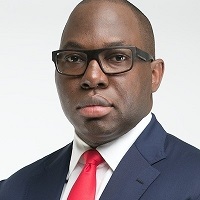
Mr. Abayomi Awobokun is chief executive officer, Enyo Retail & Supply – a fast growing downstream player in Nigeria’s oil and gas industry, utilizing technology to simplify and optimize product retailing. The company presently supplies up to 2 percent of national demand for refined products in Nigeria.
He set up Enyo Retail and Supply in 2017 as a technology focused fuels retailing company to meet the growing energy needs of Nigeria. The company is leading the downstream market in the way of application of technology in service delivery. It has introduced automated fleet and fuel management solution called Velox – a wallet-based payment solution that offers customers the ability to control fuel and energy purchases.
The service is available to corporates and individuals through a dedicated card or sticker. It is designed to bring ease, transparency and control of purchases within Enyo’s products and services portfolio.
According to the company, the product has been tailored to fit each customer’s requirements as it offers customizable solutions, including when and how payments are made, ability to set consumption and credit limits as well as monitor consumption.
This is part of Awobokun’s contributions to hold up the nation’s economy through the lockdown. According to him the product features a ‘do-it-yourself’ portal on the Enyo website where customers can request for it by filling a registration form with bio-data, vehicle and payment details. Users will then select the nearest Enyo station where they would like to pick up their card in 24 hours.
In Velox, Awobokun is on a mission to apply technology to transform the downstream petroleum network in Nigeria. “We want our customers to be in control of the fuel purchasing process and their expenses as simplifying the customer experience is at the heart of our efforts” he said while launching the product at a virtual conference.
The innovative product was conceived leveraging a convenient and controlled technological solution to create a gateway to the company’s ecosystem of products and services. The company conducted a pilot scheme successfully last year – which affirmed the pertinence of the solution and the prospective value to customers.
In a year in which Nigeria and the rest of the world faced economic and health hazards, Awobokun moved on the contrary to create safety, simplicity and convenience in the market it serves. His company’s new product offering has opened a new way for users to manage not only fuel expenses but also spending on other products and services the company provides across the nation. The company assures that customers’ information and funds are protected from unauthorised access with the user’s PIN number providing an extra layer of security.
The Velox system is built to enable automatic communication between the user’s Velox account and the card at the Point of Sale as well as the dispensing pump. It therefore reduces human intervention in the transaction process to the minimum, thereby eliminating the chances for human error and theft.
With Velox, Enyo is promising a simpler and smoother transaction process to customers. Users can have access to all transactional information as required along with frequent invoicing and monthly statements either on the Velox platform or by emailed, according to the company.
As in a typical bank account, a user’s account on the platform contains a comprehensive transactions history such as vehicle details, type and quantity of products purchased and costs. Other details include the service station used, date and time of purchase and the odometer reading. The system provides alerts on any purchases that users have not pre-approved in their customised selections.
Users can programme their preferred payment options for Velox wallet funding, including bank transfers, USSD, debit card and internet banking. The company crowns the benefits of Velox with EnyoThankU loyalty points whenever a purchase of its products and services is made on or offline.
Velox is currently available at designated Enyo service stations across twelve states of the federation, including Lagos, FCT, Ogun among others. The company is working to deploy the solution across all its service stations in Nigeria.
Awobokun studied pure and applied mathematics at the University of Ibadan and also earned M.Sc. degree in international business from the University of Surrey in the UK. He began his career at the Lagos Business School in 2000 where he worked for as an IT analyst.
He worked as an area manager with Halifax Bank of Scotland before his return to Nigeria. He joined the Oando marketing team in 2005 as project manager in strategy & planning. He rose to become the CEO of Oando Plc’s downstream businesses in Nigeria, West Africa, Europe & the Middle East.
Awobokun has over 15 years’ experience in the oil & gas sector, more than 10 years of which he served at executive level. He seats on the board of businesses in the agriculture, financial services and agro-allied industries. He is the founder of The September 20 Foundation (TS20F), a voluntary donor-funded initiative to support the operations of internally displaced person’s camps in Nigeria.
At Enyo, Awobokun makes a standing promise – to seek channels to improve upon and constantly innovate to ensure overall convenience and satisfaction for customers across Nigeria. He is counting on his team as his greatest asset to accomplish the goal.
David Lanre Messan – Founder/CEO, The First Founders Inc and Trogge Urban Limited
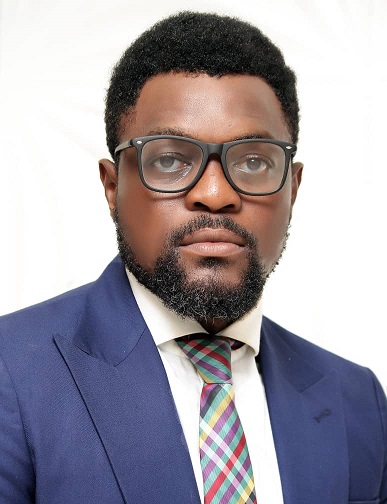
David Lanre Messan, founder and chief executive officer, The First Founders Inc and Trogge Urban Limited, is originally an idea strategist, then evolved into becoming a digital enterprise strategist, serial entrepreneur, startup advisor and angel investor. He heads a business incubation centre committed to accelerating tech start-ups that serve the retail and consumer sector through the application of social capital and technology.
His key interests are in start-ups, music, fashion and technology. He is presently focused on helping people and businesses around the world develop digital enterprise models, raise funds and drive growth.“I have built a robust network with some of the brightest minds across the world and I am happy that I am recognised as one of the go-to-persons in Africa whenever international people want to do stuff in Africa”, he said.
Messan is grounded in the knowledge and experience needed to shape up entrepreneurs’ businesses and craft the most suitable solutions possible. He has over 10 years of experience in entrepreneurship, business planning, ideas and strategy development, branding, marketing, operations, leadership and decision analysis. He has over 12 years’ experience in communications, marketing and executive business presentations in the private and public sectors.
He has spoken in over 50 conferences on key economic and social topics, major amongst them are the Grow Africa Forum, World Economic Forum on Africa, SHAPE Africa, etc. He has developed more than 100 thriving business ideas for companies, governments and corporations.
Messan has a solid academic background that has equipped him to run his talent management, digital marketing and business project management company. He studied mass communications at Lagos State Polytechnic. He also studied business marketing strategy at Nexford University, disruptive strategy at Harvard Business School and entrepreneurship and innovation at Scalabl Global Academy.
Messan had an upbringing that helped him to become conceptually insight-driven, which is a cardinal characteristic of an idea strategist. He was taught to be contented but work hard – which exposed him to the power of curiosity and exploration from an early age.
“I developed myself to become an idea strategist by investing over 13,000 hours in the course of three years or so”, he said. He did more than the 10,000 hours that Malcolm Gladwell said will make one an expert in anything. “I learned the art of entrepreneurship from my mum and the science behind intelligence and application of knowledge from my father. These values have shaped me a great deal”, he said.
Messan’s career development journey was one of weathering the storm to the top. It has been for him a journey of trials and errors, learning, unlearning and relearning. But he knew what he wanted – self-development, which he quite understood to be the only way out of an unwanted background. He did everything possible to seek knowledge; he read most of his father’s books, including ‘Think and Grow Rich’ by Napoleon Hill.
He took to hawking gala in traffic and later teaching in order to raise money to buy internet night browsing time at cybercafés. His purpose was to explore the new world of information and opportunities, to understand leadership and to become an idea strategist.
He started out with a social project in secondary schools named Lifeguard Youth Concerns where he worked to inculcate the principles of abstinence, entrepreneurship and leadership in senior students. He enrolled for LEAP Africa Youth Leadership Programme in 2006 which also helped him to focus on his goal and pursue his dreams.
Messan was selected by MTV/Staying Alive Foundation in 2005 as a finalist and was rated one of the 100 best authors by the World Bank in 2006 out of 1,900 authors in the world for sharing his ideas on how he planned to solve community problems.
In 2007, he founded Green Yaggy, a project under his first company, Infinite Impact, aimed at helping to democratise the process of starting a business and access technology opportunities. Through the project, he impacted the lives of over 250 youth directly and another 5,000 indirectly – an accomplishment that earned him a recognition as African Business Leaders Forum (ABLF) 101 Young African Leader in 2007. In 2008, he won the LEAP Africa Nokia Top 10 Youth Leadership Award.
In 2011, he was selected as a pioneer global shaper of the World Economic Forum (WEF) and grew to become the community’s curator in Lagos and a contributor at various programmes of the World Economic Forum and Grow Africa.
He has raised over $7 million for small businesses in Nigeria and Africa and has provided strategy for growth for over 250 businesses and start-ups in Nigeria. He has researched on digital enterprise integration for international magazines and has facilitated on strategy, fund raising, digital and business growth at various international platforms across several countries.
In Nigeria, he has spoken on various enterprise topics at over 200 top workshops. He has been appointed communications consultant to Lagos State Public Service Staff Development Centre. He has worked with top politicians, providing technology strategy and grassroots insights. He also worked briefly as senator with the World Business Angels Forum.
He presently serves as international partner for Nigeria with World Business Angels Investors Forum (WBAF), Turkey; scalable global ambassador for Africa and a community organiser for Harvard Business School Online. He has explored the business world, the entertainment industry, the political space and more and has come to focus on helping people and businesses go digital.
Messan is not only calling on Nigeria to build an enterprising nation; he has his hands on deck to bring about an economy where young people will learn skills needed at the workplace or in the community as entrepreneurs. “If you are a young person looking for a job, do not apply only with your CV but apply with an outcome of what you can do directly to benefit the employer.
“I have had my fingers burnt many times. I have lost money. I have been bankrupt and in debt. I have had failed businesses. I have been betrayed. It is all part of the journey. One thing that never left me was the template to make another million”, he said.
Taiwo Oluwadahushola – Chief Executive Officer, Green Eagles Agric Solutions Ltd
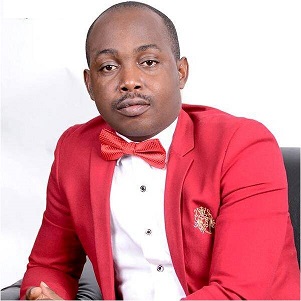
Mr. Taiwo Oluwadahushola is chief executive officer, Green Eagles Agric Solutions Ltd –an agro enterprise engaged in research and development in collaboration with agricultural research institutes. Its purpose is to create innovative solutions that enhance profitability for stakeholders across the agricultural value chain from the farm to the table.
It also facilitates easy and profitable entry for small holders into agriculture. It manages the whole value chain of agriculture on behalf of investors from primary production to sales of farm produce to pre-arranged buyers.
At Green Eagles Agric Solutions, Oluwadahushola is set on a goal of empowering Nigeria and Africa to achieve economic diversification and sustainable food security. The vision is to drive economic diversification, sustainable wealth creation and continent-wide food security for Africa’s 1.2 billion people.
He has identifies the gaps in terms of challenges and opportunities within the agribusiness and has keyed in with innovative solutions to bridge the gaps end to end. His company operates thriving businesses in the primary production sector – crops and livestock farms in south west, north central and north west Nigeria.
The secondary production operations deal on food processing. These are processing of palm oil in the south east, rice in north west, fish in south west Nigeria among others.
Tertiary production activities cover logistics and marketing of the agribusiness industry. The company is backward integrated into input production such as agrobiotics and organic fertilizers.
In his response to the Covid-19 pandemic, Oluwadahushola has set Green Eagles Agribusiness Solutions as a creative restructuring and innovation vehicle for enabling Nigeria reach its agribusiness potential. With loss of external earnings, economic recession and soaring inflation, food insecurity has become pronounced. The decisive action needed to bridge the local deficit in the production of critical food and cash crops is the focus and pursuit of Green Eagles Agribusiness Solutions.
Looking ahead, Oluwadahushola sees food insecurity hitting a flashpoint with severe loss of production in most sectors of the economy and a huge loss of purchasing power among Nigerians. Considering the extremity of the challenge that Nigeria is up against, he considers it not only imperative to creatively restructure the agricultural industry and diversify the economy but has set out in pursuit of these goals.
The company found from its research that agribusiness alone has the potential to contribute up to N402 trillion to the nation’s GDP if key innovations, industrialization and commitment are introduced at national scale. This, it said, is ahead of the annual GDP of N365 trillion the country needs to lift every Nigerian above the poverty line.
The company has set out to put into practice its research findings by creatively restructuring the nation’s agribusiness space to achieve the goal of shoring up the nation’s GDP through agriculture.
Setting the ball rolling, Green Eagles Agribusiness Solutions launched the GreenWealth Project in August 2020 to drive agricultural productivity, stimulate economic growth and ensure the attainment of food security in the country. The project is designed to draw new investments into the agricultural sector, enhance profitability for stakeholders across the value chain. It offers a profitable platform for individuals and organisations to invest in the sector.
This is Oluwadahushola’s strategic and innovative response to a situation where food insecurity has become a more serious issue than ever. “As a nation, we must bridge the local deficit in the production of critical food and cash crops to avert a major food crisis,” he said during the launch of the initiative in Lagos. He assured that his company is set to spearhead the creative restructuring and innovation required to achieve Nigeria’s food security goal with the launch of the GreenWealth Project.
The Green Eagles Agribusiness Solutions’ CEO is driving a grand, decentralised operation across the country to reach his goal. “In achieving this goal, we will facilitate the establishment of integrated farm estates in 774 local government areas across the federation to drive a rapid increase in crops & livestock, which is produced round-the-year at significantly lower production costs, until we achieve equilibrium of demand and supply at consistently lower prices,” he said.
The massive project is planned to be rich in job creation content. It is projected to provide sustainable livelihoods for millions of rural dwellers and unemployed youth as well as providing sustainable returns for investors. The project is expected to stir up unprecedented economic prosperity in and around rural communities across the nation.
The first phase of the project is geared towards realising the goal of national food security while the second phase is planned to facilitate the attainment of export prominence in crops where Nigeria has agro-ecological advantage.
The project promises an annual return of 30 percent on investment to sponsors. Investments are made on cycles and a sponsor may request a rollover or repayment of principal at the end of the cycle. The agric-tech company offers an opportunity for people to create wealth by investing in the agricultural sector without directly involving in farming activities.

